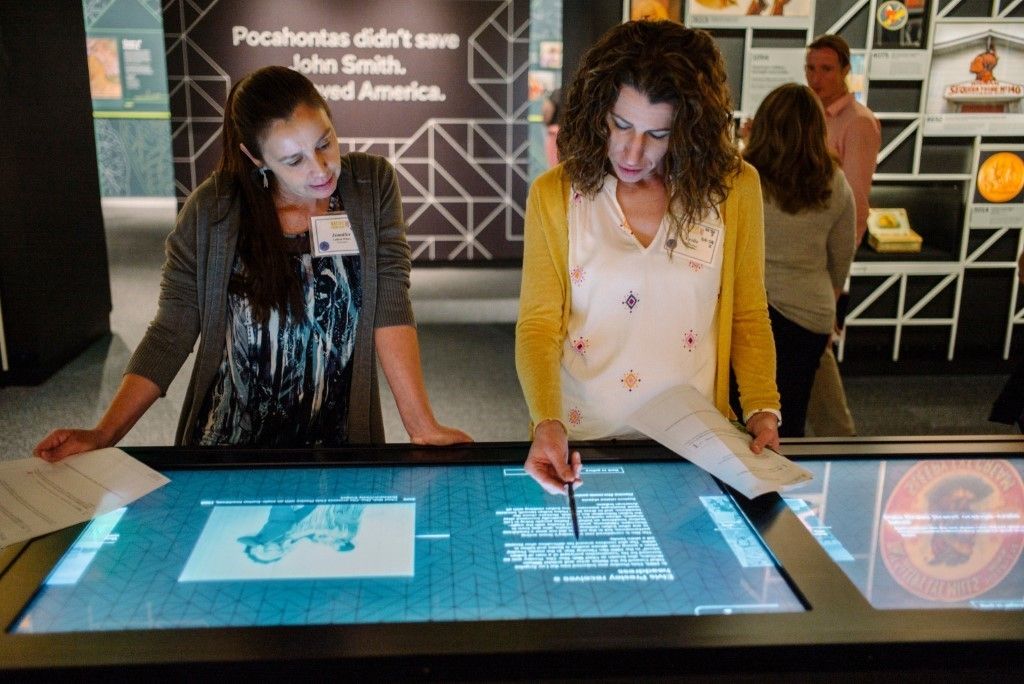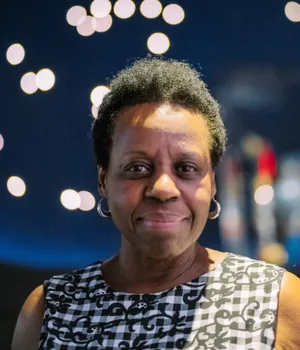Transforming Teaching and Learning About Native Americans
An ongoing goal of the National Museum of the American Indian is to change the narrative of Native Americans in U.S.’s schools.
/https://tf-cmsv2-smithsonianmag-media.s3.amazonaws.com/blogging/featured/NMAI1.png)
Remember those oversized and heavy history textbooks we labored to carry and studied as middle and high school students? Do you recall whose stories or histories were or were not included in these books? We learned about the founding fathers and a skewed sampling of great American heroes, but did we study the historical stories or perspectives of women, African Americans, Native Americans, and many other oppressed Americans? Those oversized textbooks often failed to include a more complete American story. They didn’t provide us with the critical knowledge and perspective we needed to better understand our country’s history and gain an understanding and appreciation of our differences. Today, textbooks are still written with the missing voices or perspectives of many Americans, especially Native Americans.
In 2012, the National Museum of the American Indian (NMAI) conducted a content analysis of American Indian subject matter featured in U.S. textbooks. This study found little evidence that these textbooks included any substantial information about important Native American history, culture, and contemporary life. There certainly was no integration of Native perspectives into the larger narrative of American history. Resources for classroom teachers were often incorrect, incomplete, or denigrating to Native children about their histories. It was clear that a majority of K–12 students and teachers lacked knowledge, understanding, and access to authentic resources about Native Americans. Based on this study, the museum committed to creating an online resource that would address these deficiencies. Native Knowledge 360° (NK360°) was created out of a desire to provide accurate resources on Native American history and culture to K–12 educators. NK360° would provide lesson plans, student activities, videos, and documents to tell a more comprehensive story and to challenge common assumptions about Native peoples. The museum’s ultimate goal for NK360° was to transform teaching and learning about Native peoples.
To produce this unique educational resource, staff collaborated with the National Council for the Social Studies (NCSS) to develop a framework called Native Knowledge 360° Essential Understandings. This framework built on the ten themes of NCSS national curriculum standards: culture; time, continuity, and change; people, places, and environments; individual development and identity; individuals, groups, and institutions; power, authority, and governance; productions, distribution, and consumption; science, technology, and society; global connections; and civic ideals and practices. The NK360° Essential Understandings framework, developed in collaboration with Native communities, national and state education agencies, and educators, adapted these key concepts to reflect the rich and diverse cultures, histories, and contemporary lives of Native Peoples. The Understandings reflect a multitude of untold stories about American Indians that can deepen and expand the teaching of history, geography, civics, economics, science, engineering. In 2018, the museum launched the NK360° national education initiative.
A number of factors influence our decisions about which topics we select. Foremost, we listen to teachers in conversations and though evaluation processes to determine what they need and will use. We also analyze learning standards and curricula to find out the topics that schools are required to teach. The initial teaching modules designed for grades 4–12 highlight histories of the Northern Plains Treaties, Pacific Northwest History and Culture, Pacific Northwest Fish Wars, and Inka Road Innovations. The museum recently released American Indian Removal and The “Sale” of Manhattan, each created in collaboration with tribal communities. Several lessons are also available in Native languages and Spanish. The format ranges from simple lesson plans to modules that are taught over several class sessions. Included are teacher instructions, student activities, document images, and videos of Native people sharing their stories. Teachers, accessing this information, hear the voices of contemporary Native Americans talking about their community and the importance of their history.
To introduce educators to these resources, the museum hosts teacher professional development programs that reach across the country and globally, modeling the content and pedagogical approach. The museum hosted a free webinar series for educators on July 21–23, 2020. The three-part series was geared towards 4th through 12th grade teachers. Participants learned about the problematic narratives of Native American history and discussed strategies to help students use primary sources to inform a better understanding of the Native American experience. Over 2,500 teachers attended the virtual institutes worldwide—that's almost 60,000 students that will benefit in the 2020–21 school year alone.

To produce and disseminate the resources, the museum also reaches out to state and local education officials. The museum introduces these officials to its education resources, demonstrating how NK360° can supplement existing curricula and inform developing history and social studies standards. For example, the state of Washington adopted NK360° to supplement its state curriculum guidance.
NK360° has also gained the interest of early childhood educators, and we are currently exploring formats that will address the education of young children about Native cultures through literature and objects from the museum’s collection.
As I reflect on the goals and impact of this unique online resource, I like to think of it as paving the way for our schools’ curricula, textbooks, and teaching materials to become more reflective and inclusive of the cultures of all children, giving voice to multiple historical and cultural perspectives to build appreciation and understanding of others’ histories and cultures.
Explore NK360° and our school and public programs (also produced using the Essential Understandings) on our website at www.americanindian.si.edu/nk360.
